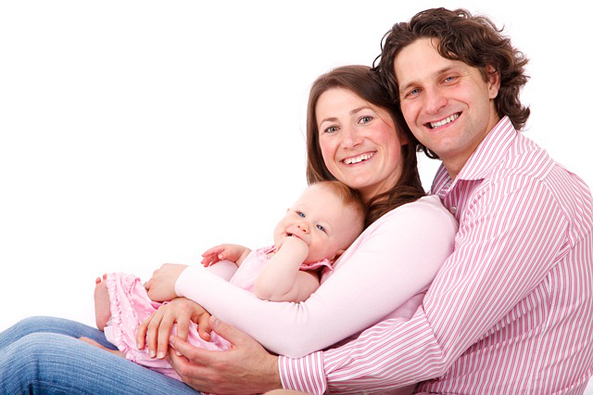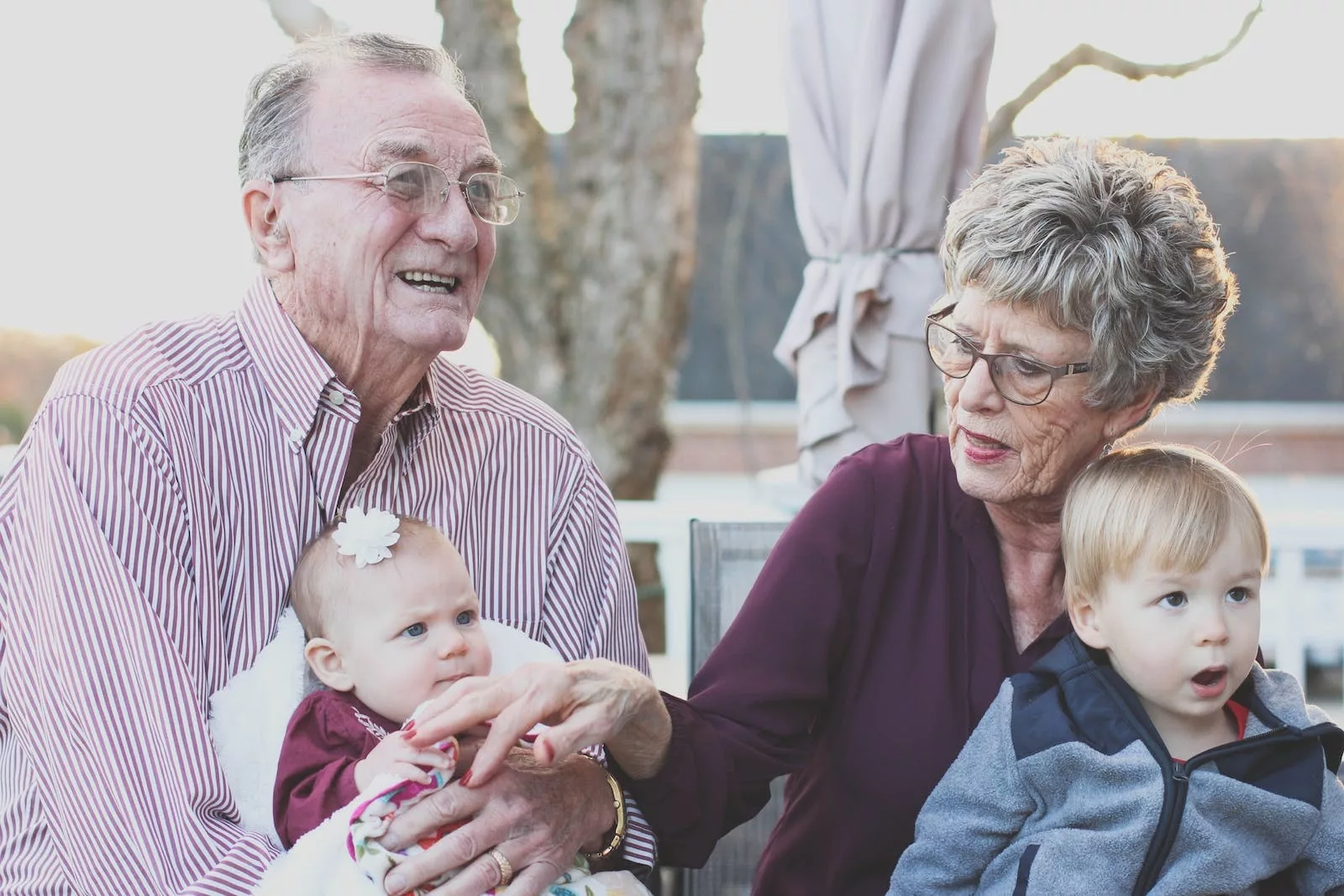In this post, we are going to talk about the Family Members in Arabic. The word “Family” in Arabic may be used in two cases:
1- When pointing to one’s small family which consists of the father, the mother, and their children together. In this case, the word Family in Arabic is translated as “Usrah” ( أسرة ), and the word Family Members in Arabic is translated as “Afradu Al-Usrah” ( أفراد الأسرة ).
2- When pointing to the big family which may include one’s grandparents, uncles, cousins, in-laws, etc… In this case, the word Family in Arabic is translated as “‘Ailah” ( عائلة ), and the word Family Members in Arabic is translated as “Afradu Al-‘Ailah” ( أفراد العائلة ).
NB: Sometimes the Arabic word “‘Ailah” ( عائلة ) can be used interchangeably to indicate both small and big family in Arabic. However, the word “Usrah” ( أسرة ) is always used to indicate one’s small family as explained previously.
Now after this small introduction let’s start learning how to speak the names of your family members in Arabic. Here are the names for the most common relatives and some of the uncommon ones:
| Father | Ab | أب |
| Mother | Um | أم |
| Parent (father) | Wālid | والد |
| Parent (mother) | Wālidah | والدة |
| Parents | Abā’ | أباء |
| Child (m) | Tifl | طفل |
| Child (f) | Tiflah | طفلة |
| Children | Atfāl | أطفال |
| Son | Ibn | ابن |
| Daughter | Ibnah | ابنة |
| Brother | Akh | أخ |
| Sister | Ukht | أخت |
| Grandfather | Jad | جد |
| Grandmother | Jaddah | جدة |
| Grandson | Ḥafīd | حفيد |
| Granddaughter | Ḥafīdah | حفيدة |
| Grandchildren | Aḥfād | أحفاد |
| Uncle (paternal) | ‘Am | عم |
| Uncle (maternal) | Khāl | خال |
| Aunt (paternal) | ‘Ammah | عمة |
| Aunt (maternal) | Khālah | خالة |
| Cousin (male) – (paternal) | Ibnu Al-‘Am | إبن العم |
| Cousin (male) – (maternal) | Ibnu Al-Khāl | إبن الخال |
| Cousin (female) – (paternal) | Bintu Al-‘Am | بنت العم |
| Cousin (female) – (maternal) | Bintu Al-Khāl | بنت الخال |
| Nephew (brother’s son) | Ibnu Al-Akh | إبن الأخ |
| Nephew (sister’s son) | Ibnu Al-Ukht | إبن الأخت |
| Niece (brother’s daughter) | Ibnatu Al-Akh | إبنة الأخ |
| Niece (sister’s daughter) | Ibnatu Al-Ukht | إبنة الأخت |
| Fiance | Khatīb | خطيب |
| Fiancee | Khatībah | خطيبة |
| Bride | ‘Arūss | عروس |
| Groom | ‘Arīss | عريس |
| Wife | Zawjah | زوجة |
| Husband | Zawj | زوج |
| Spouse (m) | Qarīn | قرين |
| Spouse (f) | Qarīnah | قرينة |
| Father-in-law (husband’s father) | Ḥamw | حَمْو |
| Mother-in-law (husband’s mother) | Ḥamāh | حماة |
| Father-in-law (wife’s father) | Nassīb | نسيب |
| Mother-in-law (wife’s mother) | Nassībah | نسيبة |
| Parents-in-law | Asshār / Nasāyeb | أصهار / نسايب |
| Son-in-law (husband’s son) | Ibnu Az-Zawj | ابن الزوج |
| Son-in-law (wife’s son) | Ibnu Az-Zawjah | ابن الزوجة |
| Daughter-in-law (husband’s daughter) | Bintu Az-Zawj | بنت الزوج |
| Daughter-in-law (wife’s daughter) | Bintu Az-Zawjah | بنت الزوجة |
| Brother-in-law (husband’s brother) | Okhu Az-Zawj | أخو الزوج |
| Brother-in-law (wife’s brother) | Okhu Az-Zawjah | أخو الزوجة |
| Sister-in-law (husband’s sister) | Okhtu Az-Zawj | أخت الزوج |
| Sister-in-law (wife’s sister) | Okhtu Az-Zawjah | أخت الزوجة |
In Arabic, the daughter or sister’s husband is called “Sihr” صهر . The same word can also be used to mean “son-in-law”. For a wife the father of her husband is called “Ḥamw” حَمْو and his mother is called “Ḥamāh” حماة while for the husband, the father of his wife is called “Nassīb” نسيب while her mother is called “Nassībah” نسيبة . More names are used when it comes to in-law relations and they differ quite considerably from one Arabic country to another. You’ll be surprised how many names are used to distinguish each and every relative, so to play it safe, let’s just call them “Nassīb” نسيب for an in-law male or “Nassībah” نسيبة for an in-law female.

you’re saying it correctly 🙂 Abi, Better to call him Baba if he is from Arabic descent.
Hey, I like this. 🙂 I was wondering, what would an orphaned and then adopted arab call her adoptive (otherwise unrelated) dad? I’ve been using Ab, and want to be sure of what I’m doing.
How do I address my maternal aunts (Khalty) husband? Is it Khally?
And what about my maternal uncles wife? Khalty?
Hi Bri, here is your answer; the “big sister” translate as الأخت الكبيرة and the “little sister” translate as الأخت الصغيرة. However these Arabic translations don’t really sound as good as they do in English. (none of my business but) I personally, advise you to think twice before getting these tattoos 🙂 I’ve seen people with Arabic tattoos that were either poorly written or were meaningless. There’s get to be a better way to celebrate your Lebanese heritage and love for your sister (Take a trip together to Lebanon, It’s a beautiful country).
Peace,
La Shukra a’la waajib 🙂
لا شكر على واجب
Hi, my sister and I want to celebrate our Lebanese heritage by getting tattoos but we need to know the correct way to write ” big sister” ” little sister” properly as it will be a permanent tattoo on our bodies!
very helpfull,,,,love it ……..thank you …..sooookhrann
Thanks!
Hey, just wanted to say thank you for this website! I’m a ESL teacher working with alot of Middle Eastern, Arabic speaking students, and it’s been incredibly helpful.
aslema lebes i am a irishman who is geeting married to a tunisian woman, i would love to be able to have some small talk with my wife to be learning arabic would be the ideal thing for me i know she will teach me a lot but i would like to leearn more…………please any help in this matter would be grateful thank you for this page here it is most enlightening contact me anytime with whatever you can give me thank you once again bislaama
I would love to learn the Arbic language due to me dating an Arbic man and I would like to speak to him in his language instead of just mines